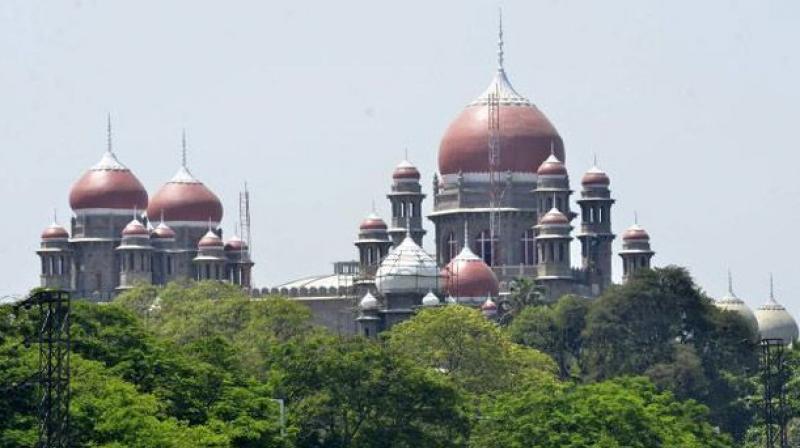Height no bar for RTC jobs: Hyderabad High Court
Denying women jobs for being short can't be justified: Judge

Hyderabad: The Hyderabad High Court has ruled that the claim for the provision of ‘compassionate appointment’ cannot be denied to a woman, merely because of her lack of height.
Justice P. Naveen Rao, while allowing three petitions by B. Annapurna and two others challenging the action of the TSRTC in not providing employment under compassionate grounds, said, “This court is of the opinion that the decision of the TSRTC in not considering the claims of the petitioners, (though they were selected), merely on grounds that they fell short of the height requirement of less than 151 cm is arbitrary, discriminatory and unconstitutional.”
The TSRTC had stated that female dependent members are entitled to apply for the post of Conductor Grade-II only under the Bread Winner Scheme.
The judge said: “Prima facie, excluding women dependents for consideration to other posts may be discriminatory against women, in regard to the Constitutional norms and the commitment of the country to the United Nations convention on the elimination of discrimination against women.”
The Corporation justified its action by insisting that a woman candidate should have a minimum height of 151 cm, as a conductor is required to issue tickets to passengers while the bus is moving and can be subjected to sudden jerks and stops.
The TSRTC said that if a conductor’s height is less than 151 cm, it would be difficult for her to hold on to the roof guardrail, and not doing this could cause severe injuries to a conductor.”
The judge said that “on first blush, the reasoning given by the corporation sounded logical. But on closer scrutiny, it was clearly discriminatory and completely unconstitutional.”
The judge said: “Since only one post is offered and a woman cannot have the same height as that of a man, the average height of women in India is 150 cm, so a majority of women would be excluded from consideration of appointment to the post of a conductor.”
The judge also noted that “the fact that the RTC relaxed its height guideline to 146 cm to a section of dependents of deceased employees would show that a person with a height of 146 cm could easily discharge the duties of a conductor effectively”.
The judge observed that “no material was placed on record to prove that women conductors below the permitted height requirement sustained any injuries. The statement by the respondent-corporation of any possible injuries is purely based on assumption and presumption.”
The judge opined that if women conductors below the required height had difficulty in holding on to the roof guard, measures could be taken to introduce other means, whereby a woman conductor could maintain balance in a moving bus and still discharge her duties effectively.
The judge directed the TSRTC to consider the petitioners and provide employment to them as conductors under the ‘Bread Winners Scheme,’ disregarding the height objection, within two months from the date of receipt of a copy of the order.
State must sanction PP case
The Hyderabad High Court has held that though sanction from the state government concerned is required to prosecute a person under the Passports Act, no writ of mandamus can be issued on the facts of the case to the investigating officer to obtain sanction after the trial court had taken cognizance of the offence.
Justice A. Ramalingeswara Rao was dismissing a petition by an advocate of the city, seeking to declare as illegal the failure by an investigation officer to obtain sanction order from the state Law department to prosecute his wife under the Passports Act for obtaining a passport by providing incorrect date of birth.
The petitioner urged the court to direct the investigation officer to obtain sanction orders from the government.
The judge said: “Admittedly Section 15 of the Passports Act bars institution of the case for violation of the provisions of the Act before a competent court without obtaining proper sanction. Chapter XIV of the Cr.PC deals with the conditions for initiation of proceedings. Cognizance of offence by the magistrates is provided under Section 190 thereof. In the instant case, the investigating officer completed the investigation and submitted a report. Cognizance in the case was taken by the magistrate.”
The judge noted that under such circumstances, the only course left open for the magistrate was to return the charge sheet for not obtaining proper sanction for proceeding with the case and for presentation of charge sheet along with requisite sanction.

